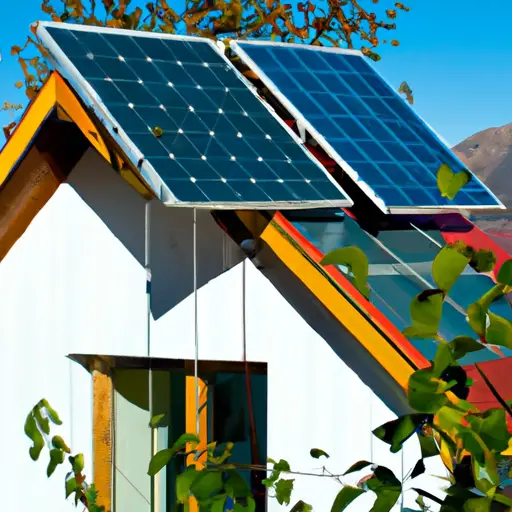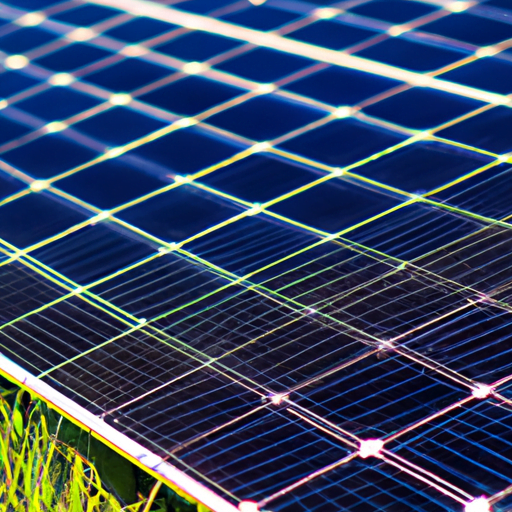Have you ever wondered what it would be like to live off the grid? You know, without relying on public utilities like electricity and water? Well, it may seem like a radical idea, but there are actually a lot of benefits to living off the grid. In this article, we’ll explore some of these benefits and why more and more people are choosing this alternative lifestyle.
Living off the grid means being completely self-sufficient when it comes to your energy and water needs. Instead of relying on the power grid or public water supply, you generate your own energy through solar panels or wind turbines, and collect rainwater for your daily needs. This not only reduces your carbon footprint, but also frees you from the rising costs of utility bills. Can you imagine not having to worry about paying for electricity or water every month?
But the benefits of living off the grid go beyond just financial savings. It offers a level of freedom and independence that is hard to find in our modern society. You are no longer bound by the constraints of the grid, and can live in remote locations or even travel while still having access to the essentials. Additionally, living off the grid encourages a more sustainable and eco-friendly lifestyle, as you become more mindful of your energy and water consumption. If you’re curious to learn more about the benefits of living off the grid, keep reading our article. When you think about modern society, one of the key elements that keeps everything running smoothly is the electrical grid. It provides us with the energy needed to power our homes, businesses, and entire cities. But have you ever stopped to consider what life would be like if you lived off the grid?
Living off the grid means disconnecting from the traditional power sources and becoming self-sufficient. It may sound challenging, but there are numerous benefits to embracing this lifestyle. In this article, we will explore ten of the most compelling reasons why living off the grid could be the best choice for you.

1. Self-sufficiency
One of the primary benefits of living off the grid is the sense of self-sufficiency it brings. When you rely on your own resources for energy and water, you become less dependent on external sources. This empowers you to take control of your life and eliminates the need to rely on utility companies or other centralized institutions. By growing your own food, generating your own power, and managing your own resources, you gain a newfound independence that is incredibly liberating.
2. Reduced environmental impact
Living off the grid also has a positive impact on the environment. Traditional power sources rely on fossil fuels, which contribute to air pollution and climate change. When you disconnect from the grid, you reduce your carbon footprint and help protect the planet. Renewable energy sources such as solar panels or wind turbines can provide clean and sustainable power without the harmful emissions associated with traditional sources.

3. Cost savings
Another significant advantage of living off the grid is the potential for cost savings. While there are upfront costs involved in setting up your off-grid system, such as installing solar panels or a water filtration system, the long-term savings can be substantial. By generating your own energy and growing your own food, you can drastically reduce or even eliminate your monthly utility bills. Over time, these savings can add up and provide you with financial freedom.
4. Greater energy independence
Living off the grid means you are no longer tied to the fluctuations of energy prices or the instability of the grid. You become self-reliant when it comes to your energy needs, ensuring a consistent source of power regardless of external factors. This added level of energy independence provides peace of mind and security, especially during times of crisis or power outages.

5. Increased connection to nature
Living off the grid also allows for a deeper connection with the natural world. Without the distractions of modern technology and the constant need for electricity, you can fully immerse yourself in the beauty of nature. Whether it’s enjoying a sunset, hiking through the forest, or simply listening to the sounds of birds, living off the grid allows you to appreciate and reconnect with the natural world on a daily basis.
6. Improved mental well-being
In our fast-paced and technology-driven society, stress and mental health issues are becoming increasingly prevalent. Living off the grid provides an escape from the daily pressures and demands of modern life. Surrounded by nature, with a slower pace of life, you have the opportunity to reduce stress, find inner peace, and improve your overall mental well-being. The simplicity and mindfulness that come with living off the grid can have a profound impact on your overall happiness and contentment.

7. Minimal reliance on public utilities
Living off the grid removes the need to rely on public utilities such as water and sewage systems. Instead, you can implement sustainable practices, such as rainwater harvesting and composting toilets, to meet your needs. By managing your own utilities, you have more control over their quality and availability. Additionally, during times of crisis or natural disasters, you are not as susceptible to disruptions in public services, ensuring your safety and security.
8. Enhanced personal skills
Living off the grid requires a certain level of self-sufficiency and resourcefulness. As you take on tasks such as growing your own food, building your own structures, or fixing your own equipment, you develop valuable skills that can be applied in various areas of life. From gardening to carpentry, off-grid living offers ample opportunities for personal growth and learning. These skills not only boost your self-confidence but also provide a sense of accomplishment and fulfillment.
9. Lowered risk of power outages
Power outages can be frustrating and disruptive, especially when they occur frequently or last for extended periods. By living off the grid, you significantly reduce the risk of power outages impacting your life. With your own renewable energy sources, such as solar panels or wind turbines, you have a constant supply of power, regardless of any issues affecting the grid. This reliability allows you to continue your daily activities without interruption and ensures that you always have access to the essential services you need.
10. Potential for self-discovery and personal growth
Living off the grid presents a unique opportunity for self-discovery and personal growth. When you distance yourself from the distractions and noise of modern society, you have the chance to reconnect with yourself on a deeper level. The solitude and simplicity of off-grid living allow for introspection and self-reflection. It opens up space to explore your passions, develop new hobbies, and discover what truly brings you joy and fulfillment in life.
In conclusion, living off the grid offers a multitude of benefits that can enhance your quality of life and provide a sense of freedom and self-sufficiency. From reducing your environmental impact to saving money and improving your mental well-being, the advantages are undeniable. While it may require some initial investment and adjustments to your lifestyle, the rewards far outweigh the challenges. So, if you’re seeking a more sustainable, independent, and fulfilling way of life, consider exploring the benefits of living off the grid.




